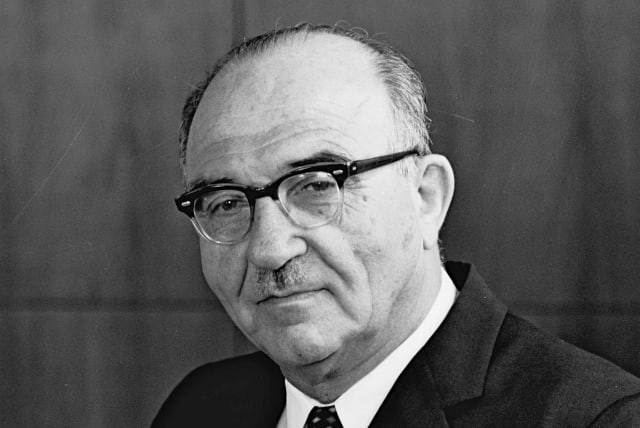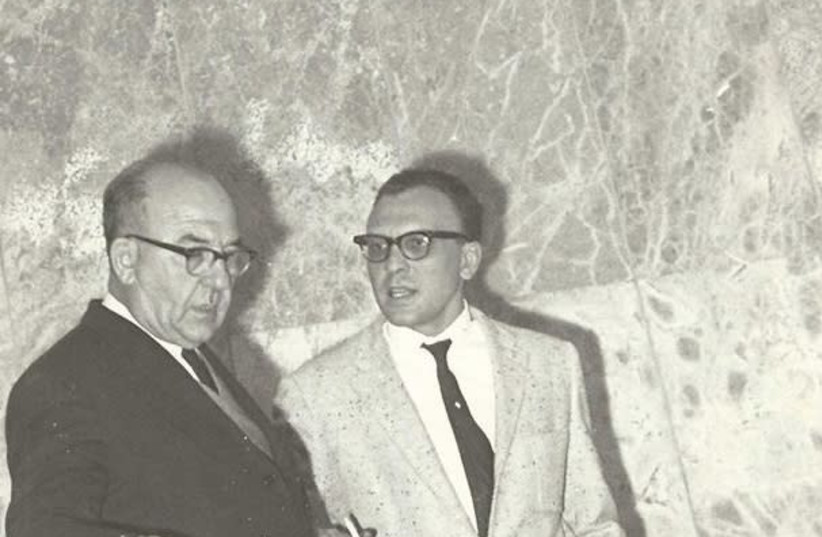How it really was: Israel’s first oil discovery

How ‘The Jerusalem Post’ and I scooped the world
It was a balmy Friday September morning in Jerusalem. Like a good Jewish husband, I was on the way to pick up the meat and groceries before Shabbat. My office was on Hillel Street, near King George. The butcher and grocer were on Havatzelet, close to the original offices of The Jerusalem Post, my first place of employment in Jerusalem a few years earlier.
Ben-Yehuda Street was a quiet thoroughfare with very little two-way traffic, a taxi stand on one side of the street toward Jaffa Road and a few poor old men sitting on stools next to portable shoeshine stands. As I strolled down Ben-Yehuda, I heard shouting, in English.
Running like a madman, eyes rolling with excitement, black Van Dyke beard quivering, waving a two-page broadsheet wildly in his right hand, with a pack of newspapers tucked under his left arm, was the usually totally sedate and controlled N. David Gross, at that time a copy editor on the news desk.
“EXTRA! EXTRA! OIL DISCOVERED IN ISRAEL!
EXTRA! EXTRA! OIL AT HELETZ!
EXTRA! EXTRA! OIL DISCOVERED IN ISRAEL!”

I ran down to David. He was totally seized with excitement. “What the hell are you doing, David?”
“We found oil in Israel, we found oil in Israel! I was duty man this morning and put out the Extra, but there was no one to sell it.”
David thrust the newspaper into my hand, yelling at the top of his voice, “Extra! Extra! Oil Found in Israel!”
I rushed back to my office, sat down at my typewriter, inserted the requisite paper, carbon and copies [Dear Young Reader, If you don’t know what this is, ask your grandparents or go online], and with my two typing fingers racing across the keyboard as madly as David had been, I wrote “it.”
Notifying Israeli prime minister Levi Eshkol
At the time, I was publicity director for State of Israel Bonds, which was financing the Development Budget of the fledgling and struggling state. “It” was a cablegram from the finance minister, Levi Eshkol, to the Israel Bond Organization in New York. He was rushing to share with them, I wrote, the wonderful news that Israel had taken a giant stride toward economic independence; he congratulated all the people who bought bonds for their part in this historic turning point.
As I finished writing, I called the minister of finance’s secretary. “Where is Eshkol?”
“At home. He’s leaving for Tel Aviv any minute.”
“Ask him please not to leave until I get there.”
I took the steps from the office three at a time, jumped into my little car (a “Henry J” Kaiser assembled in Israel with a fiberglass body) that was actually legally parked in front of the office. I was at the minister’s home on Ben-Maimon Street in two and a half minutes. No traffic lights. No one-way streets! I slammed on my brakes behind his car, jumped out, waving the cablegram, and yelled, “Rega, rega. Al te’tzeh!” (Just a minute, just a minute, don’t go.)
Finance minister Eshkol, a brawny kibbutznik in a short-sleeved shirt, waved to me to calm down. Huffing and puffing, trying desperately to catch my breath and light a cigarette at the same time, I waited while Eshkol stood beside the car and read the cable. Standing next to him was his driver. That was all the security our finance minister had, and the car was certainly a normal assembly-line product. Totally unarmed.
I handed the minister a pen. Placing the text of the cablegram on the fender of his car, he signed an OK with a flourish. “Shabbat shalom,” he said, and off he drove.
I popped into my black little car and broke every speed law driving through the traffickless streets of sleepy pre-Shabbat Jerusalem. At the bottom of the main post office there was a place called “the Mivrakah.” This was the cable and telegraph office of the Israel Post Office in Jerusalem. I handed the cable clerk the cable, told him it must go URGENT IMMEDIATE! GOVERNMENT PRIORITY. It must have been around 1 or 2 p.m. by then. I know we had a good Friday night meal that evening, but I cannot for the life of me remember when I finally did get to the butcher and the grocer.
The beginning of pumping from large gas deposits off tour shores triggered my memory of that unforgettable day. Gross put out an Extra edition of The Jerusalem Post. I wrote and sent a priority message from the finance minister to Israel Bonds, New York. The New York office inrushed it over to The New York Times. We made the front page. In the newspaper of record! The story was then picked up by news agencies across the globe,
Gross eventually became editor of the newspaper he had served with such excitement that day. Heletz barely pumps oil today. Israel did not become a world oil power. But in seven-year-old Israel, we had another power, though. The power of belief in the future we were building and the excitement as we helped Israel grow. With it, N. David Gross, The Jerusalem Post and I had scooped the world. ■
Avraham Avi-hai is a former world chairman of United Israel Appeal-Keren Hayesod, who filled numerous senior positions in the offices of prime ministers David Ben-Gurion and Levi Eshkol. From 1955, he was English speech writer for Eshkol, when the latter was finance minister.
